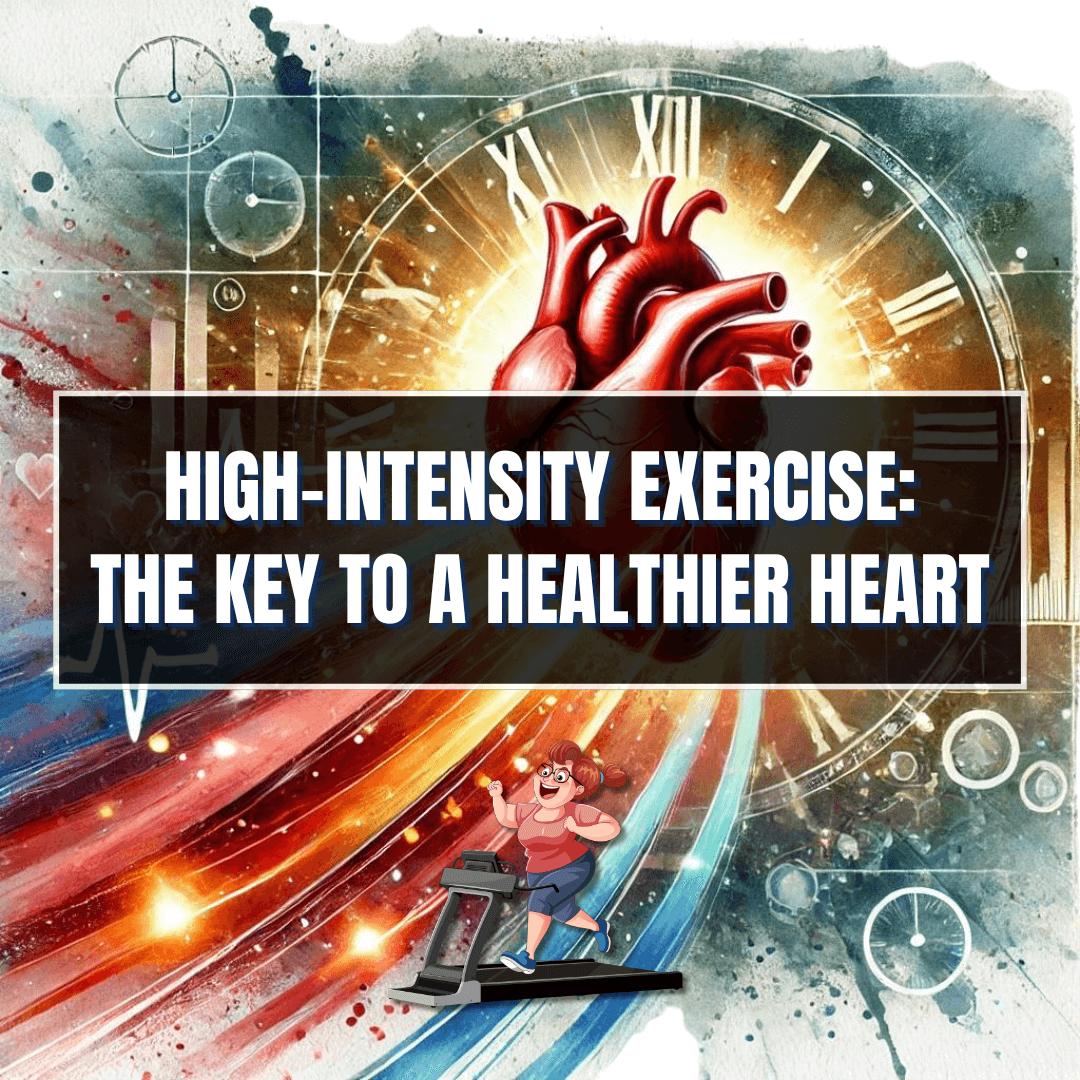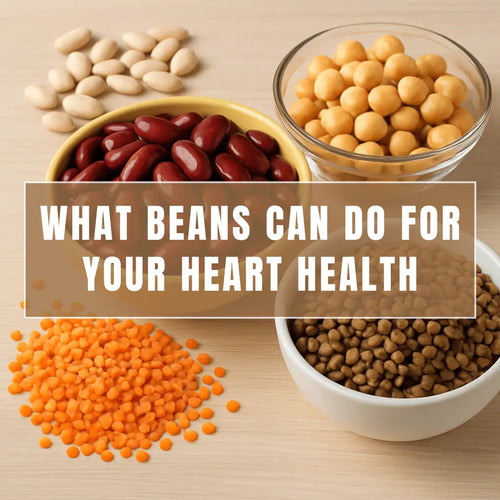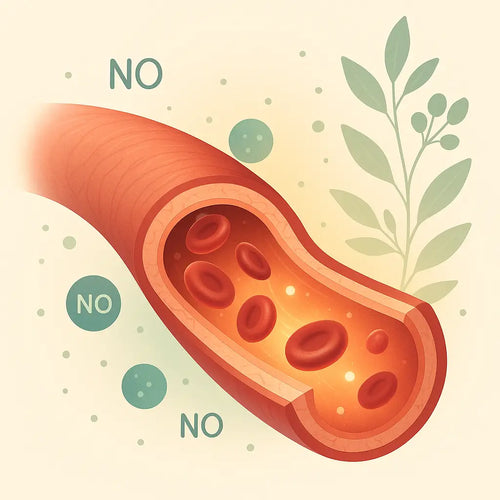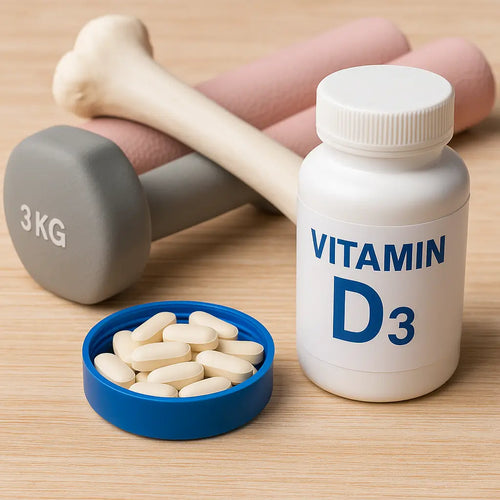
Aging and inactivity - it’s a combination that does no favors for your heart. In fact, as we hit middle age and slow down physically, one of the biggest risks we face is heart failure, particularly a type called heart failure with preserved ejection fraction (HFpEF). The culprit? Left ventricular stiffness. As we age and lead more sedentary lives, the left ventricle - the heart's powerhouse - loses its flexibility, making it harder for the heart to function properly.
A study (Howden EJ et.al., 2018) suggests that we don’t have to accept this fate. With a well-structured, high-intensity exercise routine, we might actually reverse this damage, reducing heart stiffness and bolstering our heart’s ability to pump blood efficiently. Let’s dive into the science of how high-intensity exercise can safeguard your heart as you age and, potentially, keep heart failure at bay.
The Study at a Glance: Can Exercise Rebuild Your Heart?
Researchers set out to test whether a two-year high-intensity exercise regimen could reverse the damage caused by years of inactivity in middle-aged adults. In this randomized controlled trial, 61 healthy but sedentary individuals, around 53 years old, were divided into two groups: one that performed supervised high-intensity exercise, and another that remained sedentary.
What did they find? After two years, the group that exercised showed significant improvements:
- 18% increase in VO2 max, a key measure of cardiovascular fitness.
- Reduced left ventricular stiffness, meaning their hearts were more flexible and efficient.
- A larger stroke volume, meaning the heart could pump more blood with less effort.
In contrast, the control group saw no improvements in heart function or fitness levels. These findings point to something pretty remarkable: consistent, high-intensity exercise can essentially "retrain" your heart, reducing the stiffness caused by aging and inactivity.
How Does Left Ventricular Stiffness Lead to Heart Failure?
Let’s break it down. The heart’s left ventricle is responsible for pumping oxygen-rich blood to the rest of the body. When we’re young and active, the left ventricle is flexible - it expands and contracts easily to move blood. However, as we age and become less active, this part of the heart starts to stiffen. Over time, this stiffness can prevent the heart from filling with enough blood between beats, leading to a condition known as heart failure with preserved ejection fraction (HFpEF).
HFpEF is a tricky condition because, unlike traditional heart failure, the heart's ejection fraction - how much blood the left ventricle pumps out - stays normal. The problem lies in the heart's ability to relax and fill with blood. Left untreated, this can lead to shortness of breath, fatigue, and eventually serious heart failure.
High-Intensity Exercise: The Key to a Healthier Heart
The good news is that high-intensity exercise has been shown to counteract this stiffening of the heart, improving overall cardiovascular health. But why is this type of exercise so effective?
-
Increases VO2 Max: High-intensity exercise significantly boosts VO2 max - the maximum amount of oxygen your body can use during intense exercise. The study participants saw an 18% improvement in their VO2 max after two years of regular high-intensity workouts, which means their hearts were able to pump more oxygen-rich blood with each beat.
-
Improves Cardiac Efficiency: High-intensity workouts, like interval training, place stress on the heart, forcing it to adapt by becoming more efficient. Over time, this results in reduced stiffness in the left ventricle, allowing for better blood flow and reducing the risk of HFpEF.
-
Enhances Stroke Volume: The heart’s stroke volume - the amount of blood pumped with each heartbeat - increased in participants who exercised. This means their hearts were stronger and better equipped to handle physical demands, even with less effort.
The Takeaway: Exercise for a Healthier Heart and Longer Life
So, what does all this mean for you? If you’re in your 40s or 50s and have been sedentary for a while, it’s not too late to protect your heart. In fact, it could be the perfect time to start. Incorporating high-intensity exercise into your routine can not only improve your fitness but also reduce the stiffness of your heart, lowering your risk of heart failure as you age.
Looking for an exercise routine that works for you? Consider this exercise program designed for maximum benefits. For those who are just starting out, even moderate-intensity exercise can offer substantial health benefits, but stepping up to high-intensity intervals can yield faster and more significant results.
Supplementing for Cardiovascular Health
In addition to exercise, cardiovascular health supplements can be an effective way to support heart function. Some key supplements to consider include:
- Liposomal Glutathione: Known for its powerful antioxidant properties, glutathione helps reduce oxidative stress, which can contribute to heart stiffness.
- Curcumin: This compound, found in turmeric, has anti-inflammatory effects that may help improve heart health.
- CoQ10: Coenzyme Q10 is essential for energy production in cells, particularly in the heart, and has been shown to improve cardiovascular health.
Why Heart Stiffness Decreases with Exercise
Exercise doesn’t just benefit the heart; it triggers a cascade of positive effects throughout the body, including improved endothelial function (the cells lining your blood vessels) and reduced inflammation - both factors that contribute to a healthier cardiovascular system. Studies have also found that high-intensity interval training (HIIT) in particular helps reduce age-related decline in heart function by enhancing the heart’s flexibility and blood-pumping efficiency. You can learn more about the anti-aging benefits of HIIT in this article.
Start Moving Today
The evidence is clear - regular high-intensity exercise can turn back the clock on heart aging. But don’t stop there. Pairing exercise with the right supplements can give your cardiovascular health an extra boost. Start with a simple plan and gradually increase the intensity to see real results. Check out our exercise program or read more about HIIT effects on cognition.
Reference
Howden EJ, Sarma S, Lawley JS, Opondo M, Cornwell W, Stoller D, Urey MA, Adams-Huet B, Levine BD. Reversing the Cardiac Effects of Sedentary Aging in Middle Age-A Randomized Controlled Trial: Implications For Heart Failure Prevention. Circulation. 2018 Apr 10;137(15):1549-1560.









